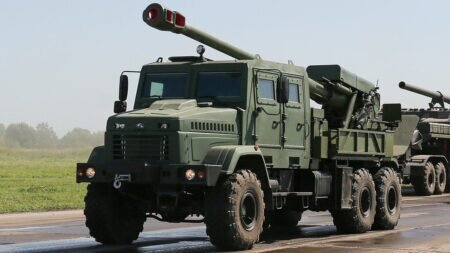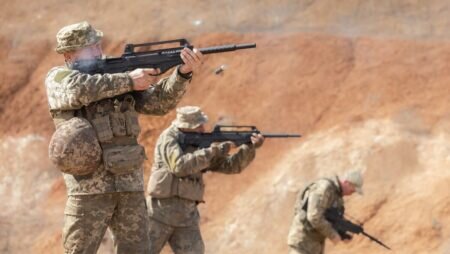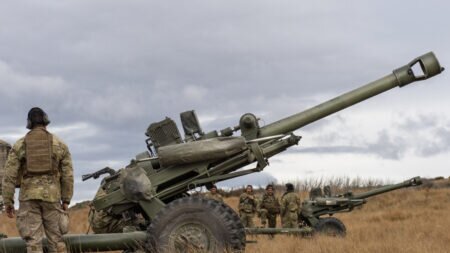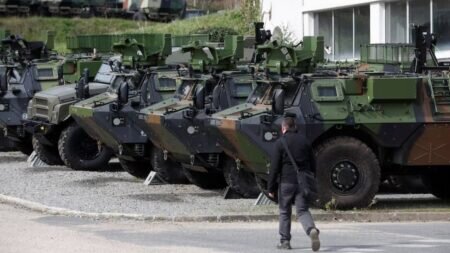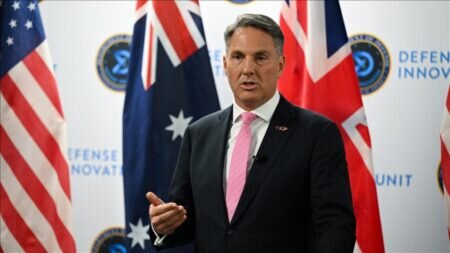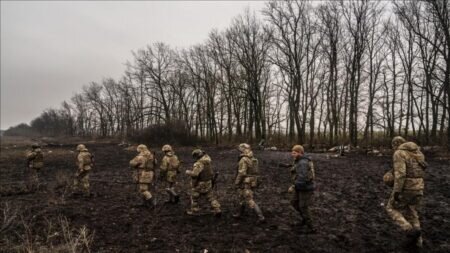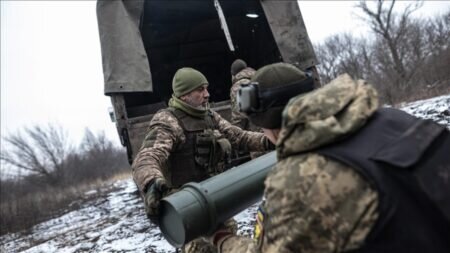With Turkey and Ukraine set to mark 30 years of diplomatic ties, Turkish President Recep Tayyip Erdogan will visit Kyiv on Thursday and sign several agreements, according to a Ukrainian diplomat.
Saying they are preparing for President Erdogan's visit, Ukraine's Ambassador to Turkey, Vasyl Bodnar, told Anadolu Agency they are "working on a busy agenda for the two presidents' meeting."
"We are also preparing a series of agreements," he said.
On Feb. 3, Kyiv is also set to host the 10th High-Level Strategic Council between Turkey and Ukraine. The heads of the two states are expected to attend the event, which will also mark the 30th anniversary of their countries' relations.
Dating back to 1991, when Ukraine declared its independence, Turkey was the first to recognize its new status.
Bodnar noted that there is "no doubt" that the visit will be successful, adding they will do their "best to add value to bilateral relations."
"In that respect, we are working on a wide range of agreements. These agreements will ensure that our cooperation is further strengthened and widened in the near future. Indeed, one of the most important areas is the strengthening of the mutual trade and the development of cooperation, especially in the customs matter," Bodnar said.
With aims to strengthen trade relations, a number of deals between the two countries' economies and trade ministries will be signed, said Bodnar, adding agreements on education, culture and the defense industry are also expected to be signed to further develop cooperation between Ankara and Kyiv.
Saying there are ongoing negotiations to finalize a free trade deal between Turkey and Ukraine, Bodnar noted: "In my opinion, both parties are very close to signing the deal."
Trade volume close to reaching $10B mark
Talks on the long-awaited free trade agreement have been ongoing for 12 years as the Ukrainian side is primarily discussing reducing customs duties for itself, according to the Ukrainian diplomat.
While noting that there is a "serious difference" in customs duties at the Turkish border, Bodnar said the talks continue and that there is no date set for signing the free trade deal. Still, both parties are "doing their best to sign the deal during President Erdogan's visit."
"We will sign an agreement that will be beneficial for the business world of both countries," he added.
Underscoring that the trade volume between the two countries continues to increase despite no free trade deal, Bodnar said Turkey and Ukraine reached approximately $6 billion in the trade of products/goods according to data for 11 months of 2021.
Noting that another $1 billion will be added from the tertiary sector, he said the trade volume between Turkey and Ukraine is expected to reach over $8 billion after adding all the numbers from last year's data.
"At this rate, we will reach the $10 billion target that our presidents previously set," he added.
On the issue of energy, Bodnar said, "Russia continues to use gas supply as a political weapon."
"We are working on diversification of our energy supplies, starting from buying some gas from the European market and into looking for different perspectives of supply through different dimensions and sources," he said.
The Ukrainian ambassador also thanked and welcomed Turkey's offer to play a mediator role between Russia and Ukraine.
"I think it is possible to carry out the mediation process in Turkey or in another country. The important thing is Russia accepts it. The Ukrainian side supports it and is ready for it," he said.
Russia has recently amassed tens of thousands of troops near Ukraine's eastern border, prompting fears that the Kremlin could be planning another military offensive against its former Soviet neighbor.
Moscow has denied that it is preparing to invade and said its troops are there for exercises. The Kremlin issued a list of security demands, including Ukraine not joining NATO, to calm tensions.
On Jan. 26, after a series of talks, the US and NATO handed their written responses to Russia's demands.
Source: AA


